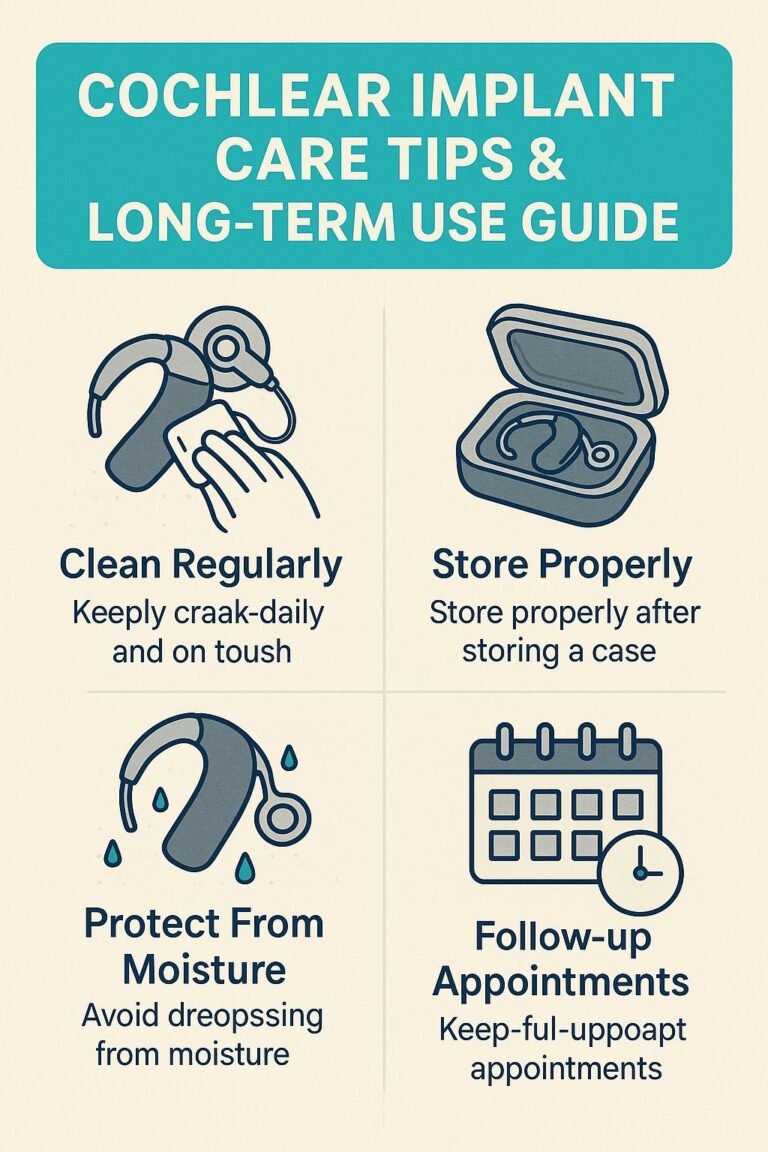Main Points
- Universal healthcare coverage is vital for improving global health. It aims to ensure that everyone has access to the health services they need without suffering financial hardship.
- Access to primary care remains a challenge. Innovations such as telemedicine and mobile clinics are key to overcoming this barrier.
- Longstanding healthcare problems, such as chronic diseases, require a multi-pronged approach that includes prevention, treatment, and education.
- Personalized medicine, which leverages technology, offers the promise of more effective and tailored healthcare solutions worldwide.
- Preventive strategies, with a focus on early detection and community health education, are critical for improving global health outcomes.
2025 Global Health Trends and What They Mean
The global health landscape is changing rapidly, and 2025 is set to be a key year. With technological advancements and a renewed emphasis on healthcare equity, we are seeing significant shifts that could change the way we approach health around the world. These trends are not just numbers; they represent real changes that can lead to better health decisions for everyone.
Regaining Confidence in Healthcare
Over the past few years, and particularly during the COVID-19 pandemic, people’s trust in healthcare systems has been severely tested. It’s vital that we restore this trust. People need to believe in their healthcare providers and systems. This means being transparent, communicating well, and engaging with the community. By regaining trust, we can make sure that people are more likely to seek care and follow medical advice.
Approaches to Bolster Healthcare Systems
Building robust healthcare systems involves enhancing resilience and capacity. It’s essential to invest in infrastructure, educate healthcare professionals, and guarantee fair access to resources. Additionally, incorporating technology can make processes more efficient and improve patient results. For instance, electronic health records can improve data sharing and continuity of patient care.
Achieving Universal Healthcare: The Road Ahead
Universal healthcare isn’t a luxury, it’s a necessity. The aim is to ensure that everyone can access the health services they need without suffering financial hardship. Some countries, such as Norway and Japan, have already managed to achieve universal healthcare and can serve as examples for others. To make this happen, countries need to prioritize healthcare financing, policy changes, and inclusive health insurance.
Addressing the Shortage in Primary Care
Primary care is the foundation of any health care system. It is usually the first point of contact for patients and is essential in preventing and treating illnesses. However, many areas still have a significant lack of access to primary care.
Obstacles to Accessing Primary Care
There are numerous roadblocks to accessing primary care, including a lack of healthcare providers, insufficient facilities, and logistical issues. These problems are particularly pronounced in rural and underserved areas, resulting in delayed diagnoses and treatment. Overcoming these obstacles will require focused interventions and the allocation of resources.
New Developments in Primary Healthcare Services
Progress is the key to overcoming the issues in primary care. Telemedicine has come up as a potent tool, enabling patients to consult with doctors remotely. Mobile health clinics are providing services in remote areas, offering vaccinations, screenings, and consultations. These developments are making healthcare more accessible and efficient, especially in addressing adult mental health crises.
The Impact of Policy Revisions and Programs
Changes in policy are a crucial part of improving access to primary care. It’s important for governments to institute policies that promote the creation of clinics in areas that are lacking in healthcare services. Programs such as medical education subsidies can help to increase the number of healthcare providers in these areas. These changes can be most effectively driven by cooperation between governments, NGOs, and private sectors.
Healthcare Challenges: Improvements and Hurdles
Even though healthcare has made significant strides, some problems persist. Chronic illnesses, socio-economic differences, and readiness for pandemics are areas that need ongoing focus and innovation.
Continued Fight Against Chronic Diseases
Chronic diseases such as diabetes, heart disease, and cancer remain the top causes of illness and death globally. A holistic approach is needed to address these:
- Public health campaigns and lifestyle changes for prevention.
- Regular screenings and check-ups for early detection.
- Personalized treatment plans and patient education for effective management.
How Socioeconomic Factors Affect Health
Health outcomes are significantly influenced by socioeconomic factors. Access to healthcare and health literacy can be affected by poverty, education level, and employment status. Systemic changes, such as improving education and economic opportunities, are required to address these, which can in turn lead to better health outcomes.
Preparing for Pandemics: What We’ve Learned
The COVID-19 pandemic has taught us a lot about how to handle global health crises. One of the most important things we’ve learned is how crucial it is to share information quickly. When a health crisis hits, getting data out quickly can save lives by shaping public health policies and people’s actions. The countries that were able to get ahead of the curve early on did so by using technology to track and report on the spread of the virus.
Moreover, funding for research and development has been crucial. The rapid creation of vaccines demonstrated what can be accomplished when scientific communities and governments work together effectively. In the future, it will be essential to keep substantial stockpiles of medical supplies and ensure that healthcare systems can quickly scale up in emergencies. These steps can help lessen the effects of future pandemics and decrease disparities in global health.
Personalized Medicine: Providing Tailored Care
Personalized medicine is changing the healthcare landscape by adjusting treatment to individual genetic, environmental, and lifestyle factors. This approach improves the effectiveness of interventions and lowers the risk of negative reactions. By understanding a patient’s unique genetic makeup, healthcare providers can prescribe medications that are more likely to be effective and safe.
Progress in Technology for Diagnostics and Care
Technology is the driving force behind precision medicine. Sophisticated diagnostic tools like genomic sequencing make it possible to identify genetic mutations that could make a person more likely to develop certain diseases. This data allows for early intervention and customized treatment plans. For example, cancer patients can benefit from targeted therapies that are designed to attack the specific genetic abnormalities in their tumors.
Wearable tech and mobile health apps are also key players. They track vital signs and health stats in real time, offering valuable data that can guide personalized care plans. By incorporating these technologies into regular healthcare, we can improve patient results and make healthcare delivery more efficient.
The Worldwide Spread of Customized Healthcare
Even though personalized medicine is a beacon of hope, its global deployment comes with its fair share of hurdles. The expensive price tag and the need for advanced technology can restrict access, especially in regions with limited resources. But, through international partnerships and financial contributions, these barriers are slowly being overcome. There are ongoing efforts to expand access to genetic testing and individualized treatments, with the goal of making these breakthroughs accessible to everyone, no matter where they live.
Obstacles to Implementation and Equity
Although it holds great promise, precision medicine is not without its challenges. One significant obstacle is the need for extensive data from a variety of populations. The majority of genomic research has concentrated on people of European ancestry, which restricts the usefulness of the results to other racial groups. Steps are being taken to include a wider range of populations in studies to ensure that the benefits of personalized medicine are available to all.
Furthermore, ethical issues come to the fore when dealing with genetic data. Privacy issues and the risk of genetic discrimination need to be dealt with to build trust and acceptance among patients. By setting up clear guidelines and rules, we can safeguard individual rights while pushing forward the field of precision medicine.
For instance, the All of Us Research Program in the United States is a project that aims to collect health data from one million individuals, specifically focusing on diversity. The goal of this initiative is to enhance our knowledge of health disparities and to customize treatments for a broader array of individuals.
The Importance of Prevention and Early Detection of Diseases
It’s always better to prevent a disease than to treat it. Strategies that involve detecting diseases early and taking action before they become serious are not only beneficial to individual health, but also help to alleviate the strain on healthcare systems.
Prioritizing Early Detection and Intervention
Spotting a disease early on is key to stopping it in its tracks. Regular check-ups and screenings can help to catch potential health problems before they develop into serious conditions. For instance, regularly checking blood pressure can help to prevent heart disease by allowing for timely lifestyle changes and medical interventions.
Public Health Awareness Campaigns
Knowledge is power, especially when it comes to preventing disease. Public health awareness campaigns are designed to promote healthy habits and the importance of regular medical check-ups. By giving people the information they need, we can promote proactive healthcare and reduce the number of preventable diseases.
Implementing Proactive Health Strategies
Proactive health strategies aim to tackle the underlying causes of health problems. These strategies address social health determinants like poverty, education, and access to healthy food. By creating environments that encourage healthy lifestyles, we can prevent the onset of diseases. For those experiencing mental health challenges, exploring adult mental health crisis solutions can be a proactive step towards well-being.
It’s crucial that governments, healthcare providers, and communities work together to put these strategies into action. If we all work together, we can create a healthier future for everyone.
How AI is Shaping the Future of Healthcare and Drug Development
Artificial intelligence (AI) is set to revolutionize healthcare and drug development. Its capability to analyze large quantities of data swiftly and precisely can speed up research and enhance patient care. Additionally, AI’s role in microbiome and gut health research is paving the way for new discoveries that could transform treatment approaches.
Tools powered by artificial intelligence can help with disease diagnosis, predicting how patients will fare, and tailoring treatment plans. AI can assist healthcare providers in making more informed decisions and enhancing patient outcomes by identifying patterns and trends in healthcare data.
Advancements in AI-Powered Research
AI is currently playing a substantial role in research. Machine learning algorithms are capable of analyzing intricate datasets, revealing insights that were previously unachievable. This ability is speeding up the discovery of new drugs and treatments, allowing them to reach the market faster and more effectively.
How AI Can Expedite the Drug Discovery Process
AI is revolutionizing the drug development process by helping to identify potential drug candidates and predict their efficacy. This reduces the time and cost of traditional drug development methods. By leveraging AI, pharmaceutical companies can bring new treatments to patients more quickly than ever before.
Of course, the adoption of AI in healthcare isn’t without its difficulties. Ethical issues, data privacy, and the establishment of regulatory frameworks are all necessary to ensure that AI is used responsibly and to its full potential. By overcoming these obstacles, we can fully harness the power of AI in healthcare and improve patient outcomes globally.
Challenges and Ethical Concerns
The use of AI in healthcare comes with a host of ethical considerations. Privacy is the most significant concern, as health data is personal and sensitive. AI systems must comply with strict data protection standards to maintain the trust of patients and healthcare providers. For those interested in understanding more about the intricacies of healthcare, a detailed overview of pituitary gland disorders can provide additional insights into medical challenges.
A significant hurdle is the possibility of prejudice in AI algorithms. If the data used to educate these systems is not varied, it can lead to prejudiced results that affect particular groups disproportionately. To counter this, it is crucial to include a broad variety of data sources and constantly check AI systems for fairness and precision.
Looking ahead to 2025, the global health sector offers both obstacles and possibilities. By prioritizing universal healthcare, narrowing the primary care deficit, tackling persistent health problems, and harnessing the power of technology, we can encourage improved health choices and results around the world.
It’s crucial for governments, healthcare providers, and communities to join forces to bring about these changes. By pooling our resources, we can create robust health systems that put a premium on fairness and accessibility for everyone. For instance, addressing issues like adult mental health can significantly improve community well-being.
Looking Ahead to Future Healthcare Breakthroughs
The breakthroughs on the horizon in healthcare could change lives. From individualized treatments to research powered by artificial intelligence, these changes could mean more successful treatments and better results for patients. By staying informed and involved, we can help shape a healthier, fairer future.
Why Global Collaboration Matters
Healthcare systems worldwide are grappling with complex challenges that can only be addressed through global collaboration. Sharing knowledge, resources, and best practices can help countries learn from each other and implement strategies that benefit all. Such collective efforts can accelerate progress and ensure no one is left behind.
Furthermore, global collaborations can speed up the process of research and innovation, allowing new treatments and technologies to be released into the market at a faster pace. Through teamwork, we can conquer challenges and reach shared objectives.
Boosting Participation and Support
People are crucial in determining the direction of healthcare. We can make a change by staying updated, pushing for reforms, and joining in community health programs. Boosting participation and support can result in more fair health results and motivate improved health choices at both the personal and community levels.
Common Questions and Answers
As we explore the changing world of global health, a number of questions come up. Here are some typical questions and their responses, including insights on long COVID symptoms and treatments that have been frequently asked.
What are the major factors pushing for universal healthcare in 2025?
The major factors pushing for universal healthcare are policy changes, more funding, and comprehensive health insurance plans. By focusing on these areas, countries can make sure that everyone has access to the basic health services they need without going broke.
What is the role of technology in improving access to primary care?
Technology is at the forefront of a revolution in primary care, making it more accessible and efficient. The rise of telemedicine and mobile health clinics are addressing the needs of underserved areas, helping to mitigate challenges such as adult mental health crises.
- Telemedicine enables patients to have virtual doctor appointments, eliminating the necessity for physical office visits.
- Mobile clinics deliver healthcare to isolated areas, offering critical services to the most vulnerable.
These advancements are breaking down logistical obstacles and enhancing the provision of healthcare.
What are the main challenges in integrating AI into healthcare?
Integrating AI into healthcare comes with several challenges, including privacy issues, potential algorithm bias, and the requirement for regulatory structures. Overcoming these obstacles is key to ensuring that AI is used responsibly and efficiently.
By setting up clear rules and always checking AI systems for fairness and accuracy, we can fully use the potential of AI in healthcare.
What is the impact of disease interception on global health?
By identifying and treating health problems before they become serious, disease interception can greatly enhance global health. This proactive method can reduce the number of preventable diseases and lighten the load on healthcare systems.
What makes restoring faith in healthcare vital for future trends?
Restoring faith in healthcare is vital to ensure that individuals are willing to seek care and follow medical advice. Transparency, communication, and community engagement are crucial to regain trust in healthcare systems.
Building trust can enhance health results and encourage superior health choices globally.
Please provide the content you’d like me to rewrite.










